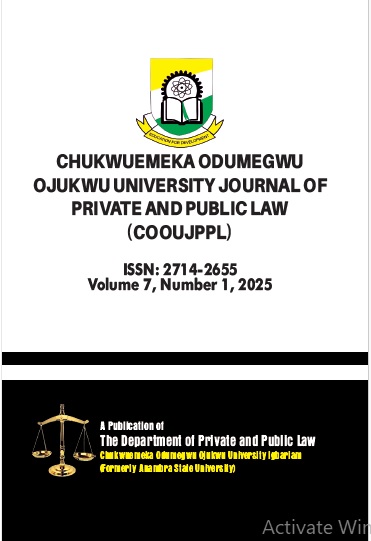THE DISPUTE STATE: A LEGAL INQUIRY INTO PERSISTENT EMPLOYMENT DISPUTES AND INSTITUTIONAL BREAKDOWN IN NIGERIA
Abstract
Persistent employment disputes in Nigeria’s public sector reflect a deeper crisis of institutional fragility, legal inadequacy, and state unresponsiveness. This paper undertakes a legal inquiry into the root causes, systemic patterns, and institutional failures that have allowed industrial unrest especially in education, healthcare, and civil service sectors to become endemic. Drawing on a doctrinal and comparative methodology, the study critically examines the limitations of Nigeria’s current legal frameworks, including the Trade Disputes Act, Labour Act, and Arbitration and Mediation Act 2023, in resolving employment disputes effectively. Despite statutory provisions for mediation, arbitration, and adjudication through the Industrial Arbitration Panel and National Industrial Court of Nigeria, the dispute resolution system remains marred by bureaucratic delays, poor enforcement of agreements, and a lack of institutional autonomy. These deficits undermine the right to decent work and contradict Nigeria’s commitments under Sustainable Development Goals (SDGs) 8 and 16, which call for inclusive economic growth, decent employment, and accountable institutions. Through a comparative analysis of successful institutional models such as ACAS (UK), CCMA (South Africa), and FMCS (USA), the paper proposes the establishment of an independent, public-sector-focused dispute resolution body in Nigeria. It further argues for the constitutional recognition of social dialogue mechanisms and stronger legal protections for collective bargaining outcomes. Ultimately, the article contends that until Nigeria transforms from a reactive to a rights-based and preventive approach to employment dispute resolution, its public institutions will remain locked in cycles of unrest, weakening governance and stalling development.

